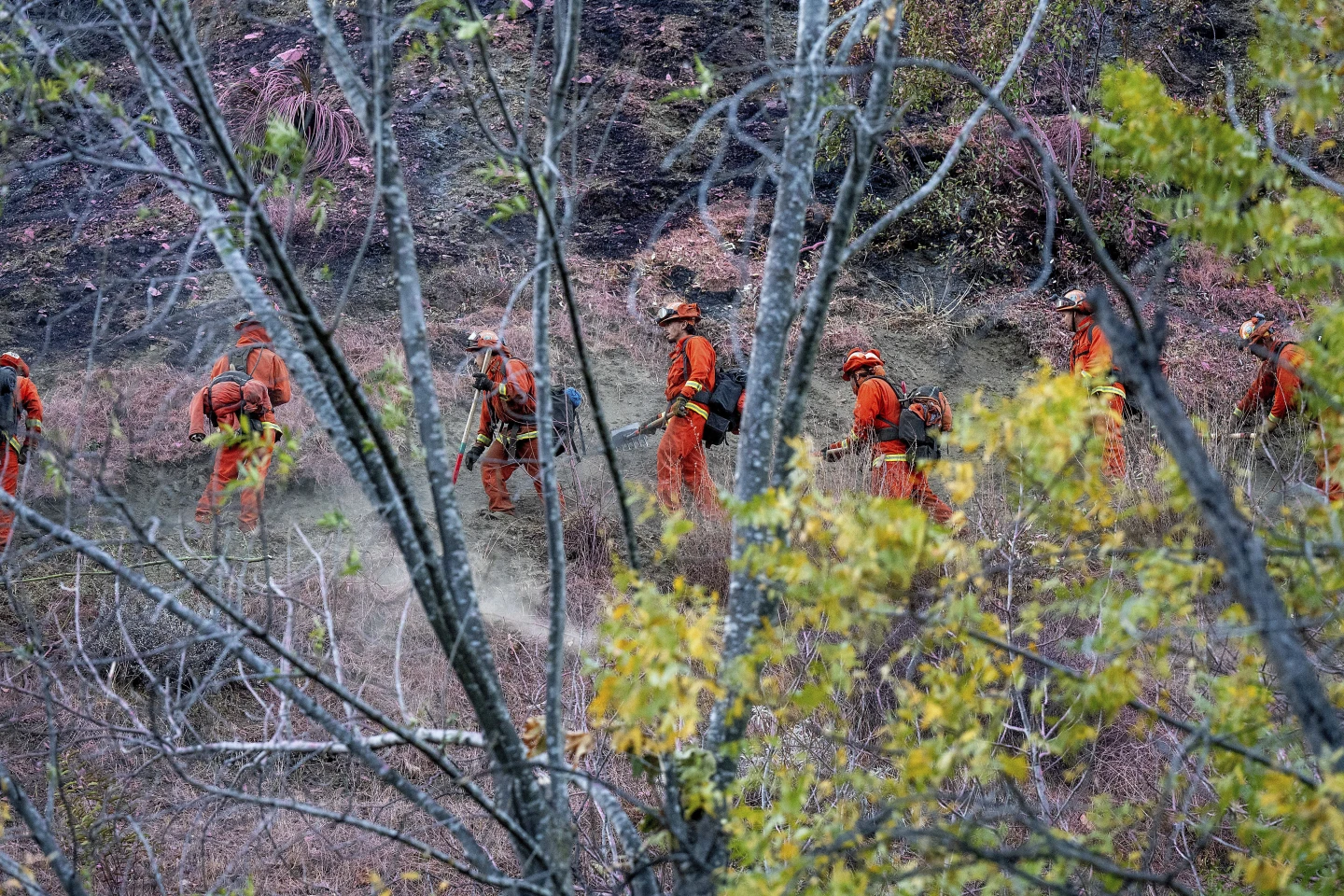Inmates Risking Lives to Control Wildfires in California, Earning Just $30 Sparks Debate
Sal Almanza works 24-hour shifts in challenging terrain, cutting fire lines and clearing brush to help contain fires. However, when the fires are out, he won't return to his family; instead, he'll go back to the prison "fire camp" where he's serving time for driving under the influence, which injured someone.
Inmates Risking Lives to Control Wildfires in California, Earning Just $30 Sparks Debate
Inmates Risking Lives to Control Wildfires in California, Earning Just $30 Sparks Debate
Pasadena, California: Sal Almanza works 24-hour shifts in challenging terrain, cutting fire lines and clearing brush to help contain fires. However, when the fires are out, he won't return to his family; instead, he'll go back to the prison "fire camp" where he's serving time for driving under the influence, which injured someone.
"I wanted to do something positive while I was here," said the 42-year-old. "Something that could give back to the community and make me feel better about my situation."
More than 1,100 California inmates have been working around the clock in challenging conditions — including strong winds and toxic smoke — to help Cal Fire contain the Eaton and Palisades fires, the largest and most destructive among half a dozen fires that have burned in the Los Angeles area in the past two weeks. They become firefighters for the chance to reduce their sentences, get outside the prison walls, and receive training that might help them find a job once they are released.
However, some believe that inmates risking their lives deserve more: to be paid on par with other firefighters.
"We always talk about how it’s an injustice and we’ve never addressed it," said California Assemblymember Isaac Bryan, who introduced a bill that would pay inmates the same as the lowest-paid non-incarcerated firefighter.
In tackling wildfires, inmates carry 45 to 65 pounds of gear, hiking for hours in difficult terrain to cut containment lines to prevent the spread of flames.
Almanza, serving a 4-year sentence at Fenner Canyon Conservation Camp, said the firefighting is physically demanding. "You’re putting your body through things you think it can’t handle, pushing it to the limit," he said.
The fires have claimed at least 27 lives and destroyed over 12,000 structures, potentially ranking among the most destructive wildfires in California's history, according to Cal Fire.
California began training inmates to fight fires during World War II when many men were deployed overseas. Today, 35 "fire camps" are operated where inmates can train to become certified wildland firefighters.
Supporters of California's inmate firefighting program believe that the inmates' contributions help atone for their crimes and assist in reintegrating them into the community.










